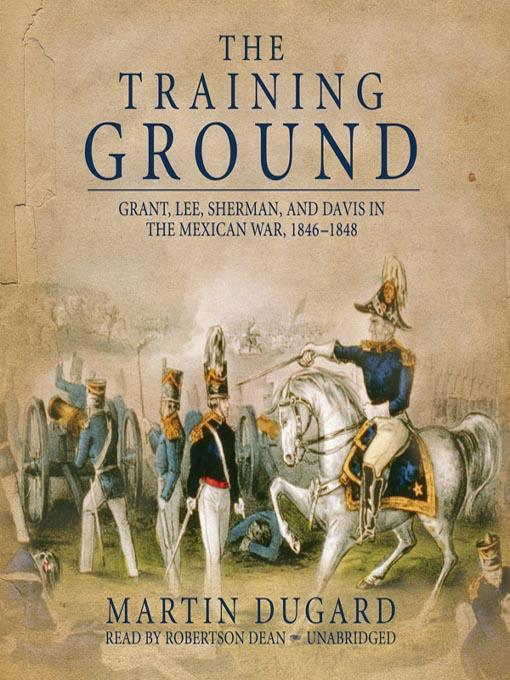
The Training Ground
Grant, Lee, Sherman, and Davis in the Mexican War, 1846-1848
- اطلاعات
- نقد و بررسی
- دیدگاه کاربران
نقد و بررسی

The Mexican-American War not only preceded the Civil War, but trained many of the officers who fought in it. The author chronicles the environment, the men, and the battles to win the American Southwest. It is prescient to see how Robert E. Lee's contributions and experiences in Mexico refined his later brilliance as a Confederate general. The story adapts well to audio; the narrator, Robertson Dean, makes it enjoyable and easy to understand with his deep voice and articulate diction. His skillful treatment of the little asides and details, such as the battle with the sand fleas at Veracruz, adds to the impact for the listener. Although Dean's Spanish sounds very "American," the small fluffs don't distract from the excellent narration. J.A.H. (c) AudioFile 2008, Portland, Maine

March 17, 2008
Dugard (The Last Voyage of Columbus
) offers a fast-paced, colloquially written account of the Mexican War of 1848, constructed around the experiences of the U.S. Army’s corps of junior officers. Shaped by the common experience of West Point and tempered by battle, these comrades in arms (including Lee, Grant, Davis and Sherman) matured into the leading generals and statesmen on both sides of the Civil War. Dugard introduces others as well, from Union artilleryman Henry Hunt to Confederate icon Stonewall Jackson, who also learned their craft fighting the Mexicans. At the war’s end, commanding general Winfield Scott saluted West Point’s graduates as the key to America’s victory over Mexico. The image of a band of brothers transformed into enemies by conscience and politics is a familiar trope of the Civil War, but Dugard’s spirited narrative animates a group of men whose force of character, professional skill and ability to think outside conventional limits revitalized the sclerotic army. Readers will conclude this book with reinforced awareness of why the Civil War was so long and so bitterly fought: because, as Dugard shows, the contending armies were shaped and led by a remarkably capable—and experienced—body of officers.




دیدگاه کاربران